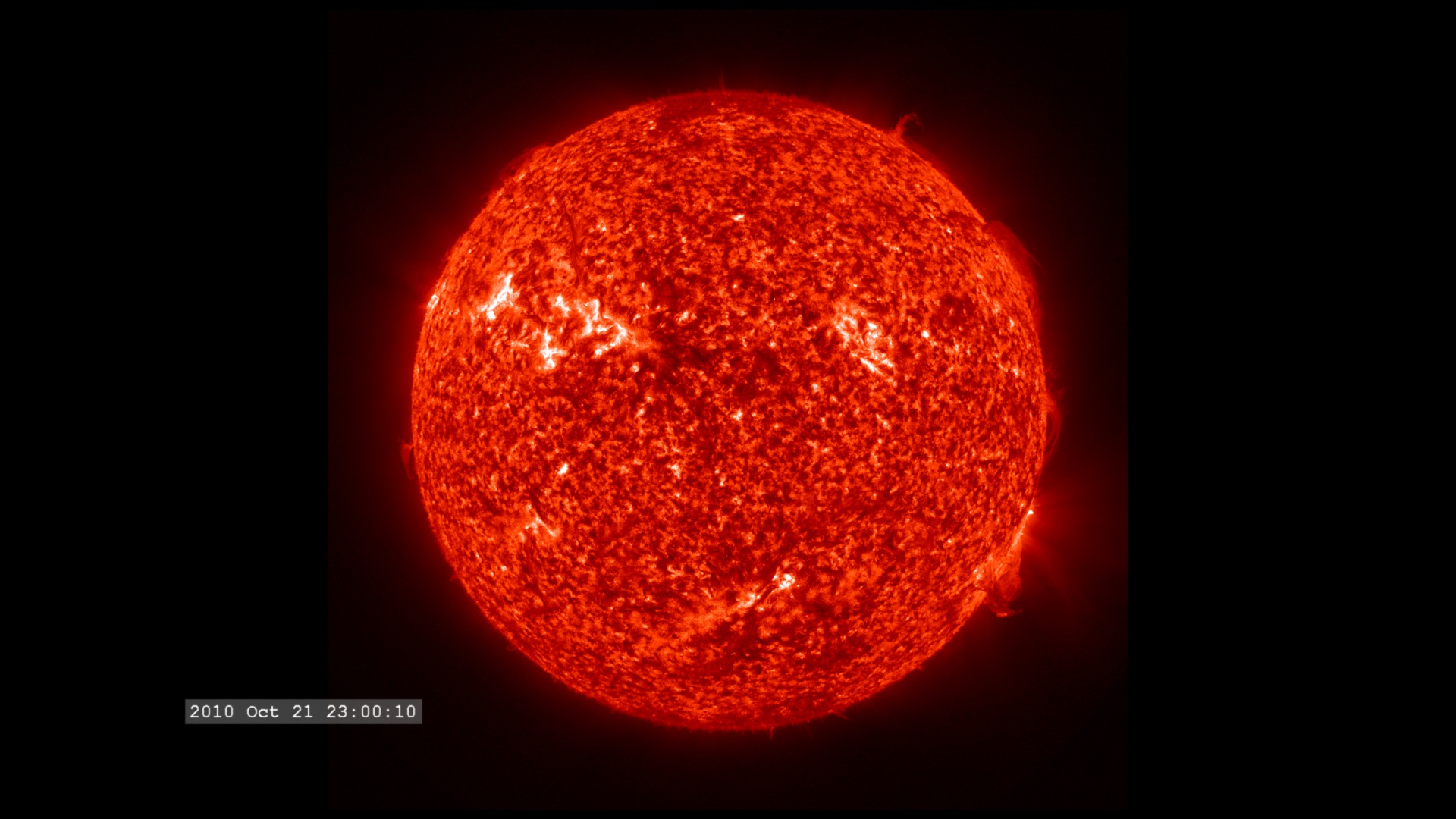A Coronal Mass Ejection strikes Venus!
Energetic events on the Sun have impacts throughout the Solar System. This visualization, developed for the "Dynamic Earth" dome show, opens with a closeup view of the Sun. The solar imagery was collected from the Solar Dynamics Observatory (SDO) using an ultraviolet filter (wavelength 304 Ångstroms or 30.4 nanometers). We can observe jets of ionized gases, called prominences, erupting from the solar surface, and often constrained to loop-shaped trajectories due to the solar magnetic field.
We pull out from the Sun to reveal the solar wind, which continuously streams outward from the Sun.
We eventually reach the orbit of the planet Venus, the solar wind still streaming around us.
But a massive eruption, called a coronal mass ejection, or CME, takes place on the Sun, sending a much higher density of particles (ions and electrons) outward into the solar wind.
The wave of particles eventually strikes the planet Venus. But Venus has no significant magnetic field, and the particles make it directly to the atmosphere of the planet. These energetic solar events slowly blow away the atmosphere of the planet.
The next part of this sequence is "The Coronal Mass Ejection strikes the Earth!".
Technical Details
This is the dome show component moving from the Sun to Venus being hit by the CME.
The domemaster format was created by rendering 7 separate camera tiles. The tiles were then stitched together to form final domemaster layers at 4096x4096 resolution and 16 bits per channel with premultiplied alpha and no gamma correction. There are 3 domemaster layers that should be composited as follows:
- Earth and orbits
- Sun
- star field (no alpha channel)
In addition to the final domemaster frames and movies, the individual camera tiles are included as well. Each domemaster layer has a set of camera tiles. There are 7 cameras numbered 00 through 06 that represent the itiles. Camera 00 is in the center of the domemaster, camera 01 is looking below camera 00, cameras 01 through 06 look around the outside of the dome master in counter-clockwise order. These frames are probably only useful if a better re-stitching algorithm is ever required to be run on the tiles.
This is the movie traveling from close to the Sun, out to Venus being hit by the CME.
- Corona
- Coronal Mass Ejections
- Coronal Properties
- Earth Science
- EUV Imaging
- Extreme Ultraviolet Imaging
- Heliophysics
- Hyperwall
- Planetarium
- Planets
- SDO
- Solar Activity
- Solar Dynamics Observatory
- Solar Flares
- Solar System
- Solar Ultraviolet
- Solar Wind
- Space Weather
- Sun-earth Interactions
- Sun-Venus Interactions
- Venus
Credits
Please give credit for this item to:
NASA/Goddard Space Flight Center Scientific Visualization Studio
-
Animators
- Greg Shirah (NASA/GSFC)
- Horace Mitchell (NASA/GSFC)
- Tom Bridgman (Global Science and Technology, Inc.)
Release date
This page was originally published on Saturday, September 1, 2012.
This page was last updated on Sunday, February 2, 2025 at 10:03 PM EST.
Missions
This page is related to the following missions:Series
This page can be found in the following series:Datasets used
-
AIA 304 (304 Filter) [SDO: AIA]
ID: 677This dataset can be found at: http://jsoc.stanford.edu/
See all pages that use this dataset -
Enlil Heliospheric Model (Enlil Heliospheric Model)
ID: 685MHD solar wind simulation
See all pages that use this dataset
Note: While we identify the data sets used on this page, we do not store any further details, nor the data sets themselves on our site.


